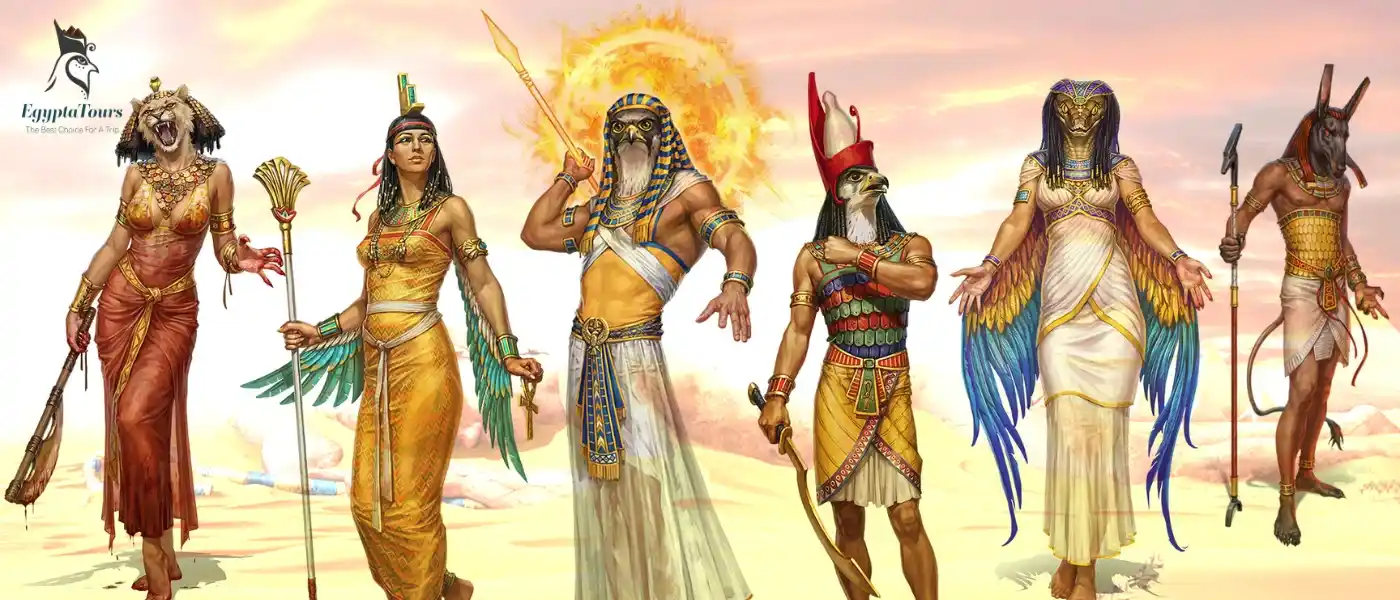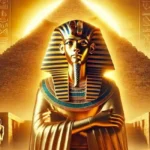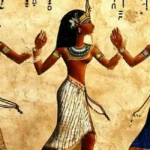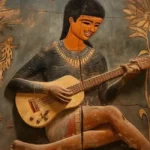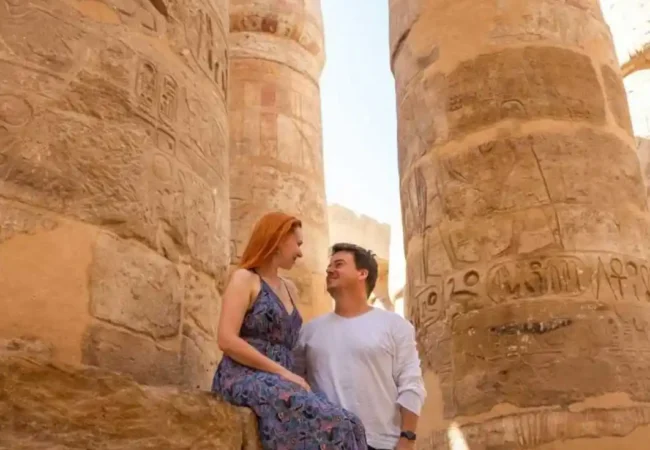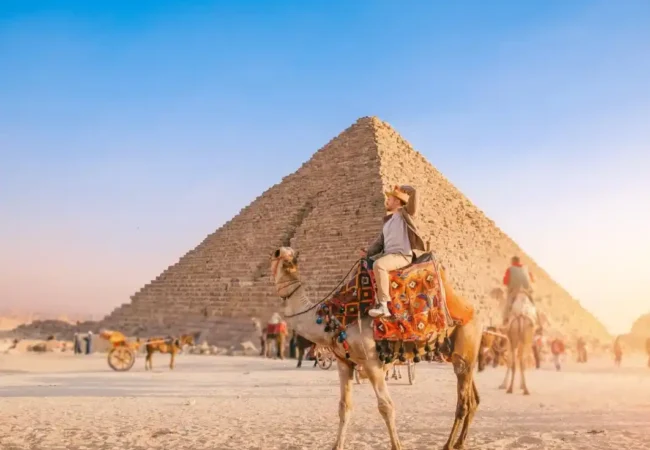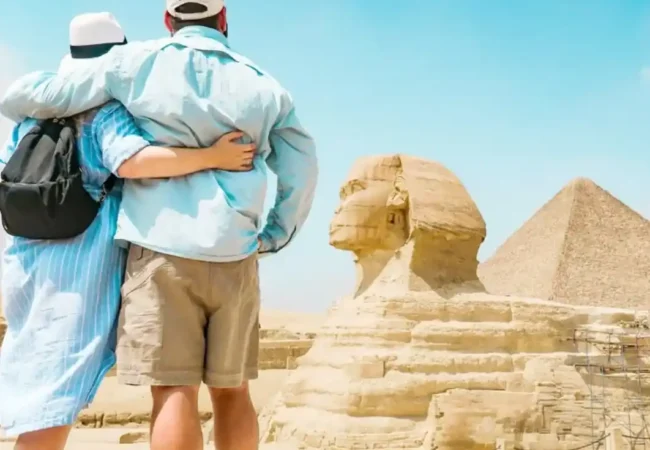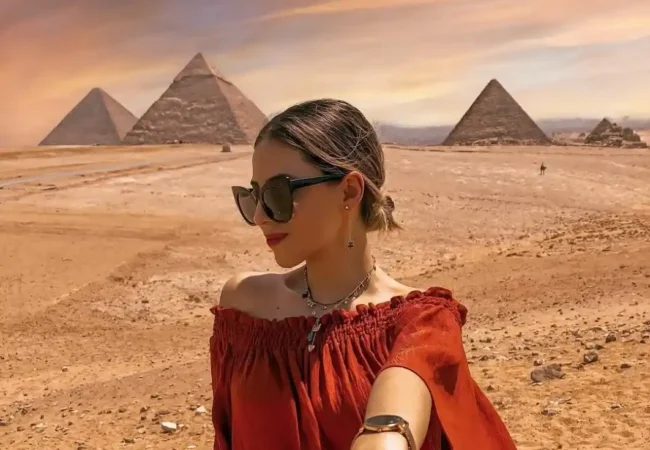
What did Greek replace Egyptian gods name with Their Own Deities?
When the Greeks entered Egypt and were influenced by its culture, they modified the names of the Egyptian gods according to their own gods and beliefs. This cultural interaction led to an integration between Egyptian and Greek mythology.
The Greeks replaced some of the names of the Egyptian gods with their own names while maintaining many of the common features between the divine figures in the two cultures. In this article, we will explore What did Greek replace Egyptian gods’ name with?
When the Greeks interacted with the ancient Egyptian civilization, they adopted some of the Egyptian gods and merged them with their own gods, which led to the emergence of new gods that combined the qualities of the Egyptian and Greek gods:
- Serapis: He is a hybrid god that combines the qualities of the Egyptian god Osiris and Apis with some aspects of Greek culture, particularly Zeus.
- Isis: The Egyptian goddess Isis was adopted by the Greeks and Romans and became worshiped throughout the Roman Empire and was considered the goddess of motherhood, magic, and healing.
- Anubis: The Egyptian god Anubis, who was considered the god of the dead and mummification, was associated with the Greek god Hermes to form Hermanubis.
- Horus: The Egyptian god Horus, who was considered the god of the sky and protection, was merged with the god Apollo in Greek mythology. Apollo was the god of the sun, light, and arts, and had a similar role in protection and healing.
- Thoth: The Egyptian god Thoth, who was considered the god of wisdom and writing, was merged with the god Hermes in Greek mythology. Hermes was the god of trade and letters, and had a similar role in wisdom and knowledge.
What did Greek replace Egyptian gods name with?
The Greeks replaced the names of the Egyptian gods for several reasons related to the cultural and religious interaction between the two civilizations. When the Greeks began to interact with Egypt at different periods, especially during the Hellenistic period after the conquests of Alexander the Great, there was a desire to reconcile the religious beliefs of the Egyptians and the Greeks by modifying the names of the Egyptian gods.
Religions and cultures were merged so that the Egyptian gods could be understood within the Greek religious framework.
This reconciliation allowed the Egyptians and Greeks to share the same religious symbols and spiritual concepts, facilitating the process of religious and cultural exchange between peoples, all according to their own beliefs.
What did the Greeks replace with the names of the Egyptian gods?
When the Egyptian and Greek civilizations merged, the Greeks modified the names of the Egyptian gods to suit their own beliefs. They replaced many Egyptian gods with Greek names, while preserving the basic qualities and functions of each god in both cultures.
Isis
She is a goddess from ancient Egyptian mythology, and she was adopted by the Greeks and Romans in their myths. Isis is considered one of the most important goddesses in the beliefs of the ancient world. She was worshiped as the goddess of motherhood, magic, and healing.
In Egyptian mythology, Isis was the wife of Osiris, the Egyptian god who was believed to be the ruler of death and resurrection. When Osiris was killed by his older brother Seth, Isis took it upon herself to bring her husband back to life.
After a period of effort and sacrifice, Isis was able to bring her husband back to life, and he became the Egyptian god who ruled death and rebirth. She was worshipped throughout the Roman Empire, and people believed that she granted life, fertility, and good luck to all who respected and worshiped her.
Osiris
He is a god from ancient Egyptian mythology, and he was adopted by the Greeks in their mythology. Osiris is considered the god of resurrection and eternal life in Egyptian mythology, and he was worshipped as the god of the dead and resurrection.
In Egyptian mythology, Osiris was the king of Egypt and the husband of Isis, the Egyptian goddess who was considered the goddess of motherhood and magic. The legend says that Osiris was killed by his brother Seth, who aspired to rule Egypt.
After his murder, Isis collected the parts of his torn body and revived him using her magical power. After that, Osiris became the ruler of the underworld and the god of resurrection.
Anubis
Anubis is a god from ancient Egyptian mythology, and was considered the god of the dead and mummification. He was depicted with the head of a jackal and the body of a human and played a major role in Egyptian funerary rituals and Egyptian mythology.
Anubis was responsible for accompanying souls to the afterlife and was believed to protect graves and supervise the mummification process and was considered a protector of souls on their journey to the afterlife.
Horus
He is a god from ancient Egyptian mythology, and was considered the god of the sky and protection and was depicted with the head of a falcon and the body of a human, and played a major role in protecting the pharaoh and the Egyptian people.
Thoth
Thoth is the god of wisdom and writing among the ancient Egyptians, and was considered one of the most important gods in the Egyptian pantheon and was depicted in the form of a baboon or a sacred ibis or in the form of a man with the head of an ibis and it is believed that Thoth is the one who was believed to be the patron of writing and wisdom, often associated with the invention of hieroglyphic writing.
In Egyptian mythology, Thoth was considered the god of wisdom and knowledge, and he had knowledge of magic and secrets not revealed to other gods and in scenes of the underworld. Thoth was depicted weighing the heart of a dead person to issue the final judgment on him.
If the heart was lighter than a feather, this was evidence that the dead person was a righteous person who deserved to pass to heaven, and if it was heavier, this meant that he was burdened with sins and transgressions.
FAQs
What did the Greeks call Egypt?
The Greeks called Egypt Aegyptus.
Who is the equivalent of Anubis?
In Greek mythology, the god Hermes is considered the equivalent of the Egyptian god Anubis. He was the god of the dead and mummification in ancient Egyptian mythology and was depicted with the head of a jackal and the body of a human. Hermes, who was the messenger of the gods in Greek mythology, played a role in transporting the souls of the dead to the afterlife, making him a suitable partner for Anubis in hybrid mythology.
In conclusion, the Greeks’ interaction with the ancient Egyptian civilization led to the adoption of some Egyptian gods and their own gods, resulting in the emergence of new gods that combined the characteristics of Egyptian and Greek gods.
This adoption was the result of cultural rapprochement and trade and political exchange between the two civilizations. By merging Egyptian gods with their own gods, the Greeks were able to strengthen cultural and religious ties between peoples, which enriched the religious and mythological heritage of both civilizations.







